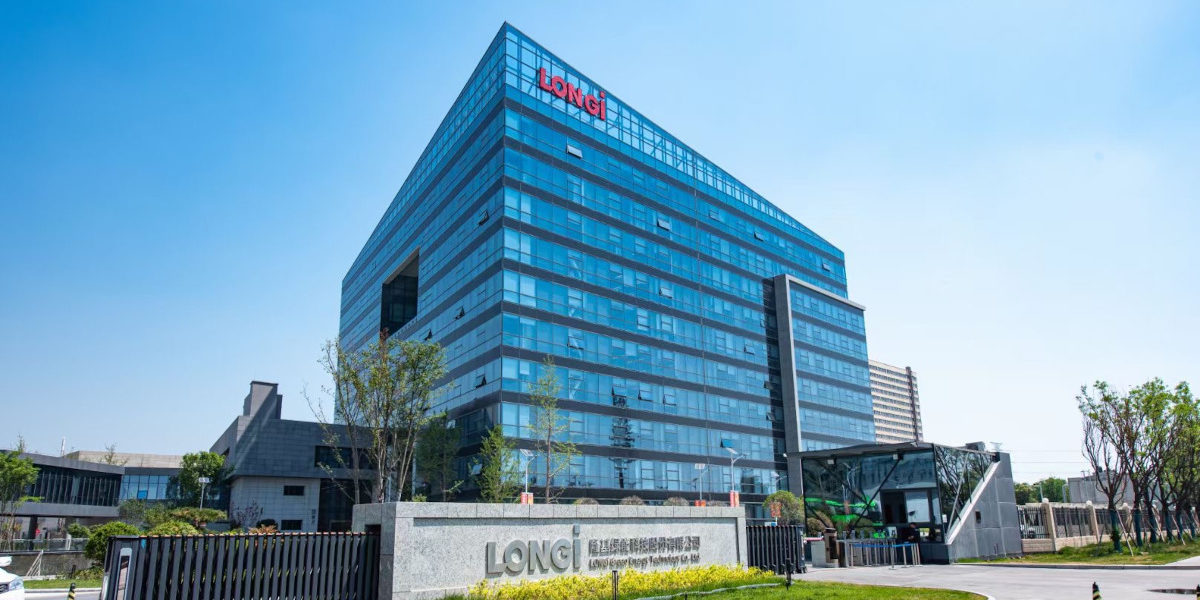From pv magazine Germany
Chinese module manufacturer Longi announced its intention to challenge the recent decision with which the court of appeal in The Hague, the Netherlands, has decided to extend the preliminary cross-border injunction against its Dutch subsidiary Longi (Netherlands) Trading B.V. in the patent dispute with South Korea-based panel maker Hanwha Q Cells.
“Longi is very disappointed about this judgement and starts preparation of appeal to The Supreme Court of the Netherlands and the European Court,” the company said in a statement, adding it considers this judgment of a pre-litigation relief measures are incorrect in the application of law in various aspects. “The Company firmly believes that the related products are not infringing any of Hanwha's rights in the 11 countries.”
Longi emphasized that the injunction only affects the Dutch unit and has “no direct impact” on customers in other countries or other parts of the company. The injunction provides that Longi Solar's Dutch subsidiary may not encourage customers to infringe the EP ‘689 patent in countries where Hanwha Solutions Corporation is the registered owner. Longi Netherlands is not allowed to offer for sale, sell or distribute the modules related to the patent litigation in Belgium, Bulgaria, Germany, France, Hungary, Liechtenstein, Austria, Portugal, Spain, the United Kingdom and Switzerland.
“The business activities of Longi Netherlands with any countries other than 11 countries will not be affected,” the manufacturer went on to say. “In addition, to ensure that the interests of Longi’s customers are safeguarded to the best possible extent, Longi will also promptly deliver new products (include HIH, HIB, HIBD etc.) based on a different back-up technology, which have no risk whatsoever to infringe the cross-border injunction and can thus be offered freely in those 11 countries affected by this judgment.”
Longi added its new products have already achieved considerable sales in many countries within Europe and proved to meet the satisfaction of many customers. “We have a capacity of 6.5GW to ensure the demand of the European market. If there is a greater demand in the market, we can easily meet it by upgrading our existing production lines,” it concluded.
The patent dispute between the photovoltaic manufacturers dates back to spring 2019. In March 2019, Hanwha Q-Cells filed a patent infringement lawsuit in both Germany and the United States, and shortly afterward in Australia, against Longi, REC and a third defendent, JinkoSolar. According to the company, its three competitors have illegally used its patented technology in their products. In June 2020, the Regional Court of Düsseldorf in Germany ruled in favor of Hanwha Q-Cells in the first instance. REC and Longi Solar appealed against the decision, whereupon Hanwha Q-Cells initiated the preliminary enforcement of the decision. In Hanwha Q-Cells' view, Longi Solar and REC did not take sufficient measures to comply with the court-ordered recall obligation, which is why Hanwha applied for a fine.
That legal dispute, by which Hanwha Q-Cells wants to prevent the distribution of patent-infringing solar modules in European third-party countries, has been swelling since the summer of 2021. At that time, a court in Rotterdam ordered the seizure of a delivery of Longi solar modules.
This content is protected by copyright and may not be reused. If you want to cooperate with us and would like to reuse some of our content, please contact: editors@pv-magazine.com.




4 comments
By submitting this form you agree to pv magazine using your data for the purposes of publishing your comment.
Your personal data will only be disclosed or otherwise transmitted to third parties for the purposes of spam filtering or if this is necessary for technical maintenance of the website. Any other transfer to third parties will not take place unless this is justified on the basis of applicable data protection regulations or if pv magazine is legally obliged to do so.
You may revoke this consent at any time with effect for the future, in which case your personal data will be deleted immediately. Otherwise, your data will be deleted if pv magazine has processed your request or the purpose of data storage is fulfilled.
Further information on data privacy can be found in our Data Protection Policy.